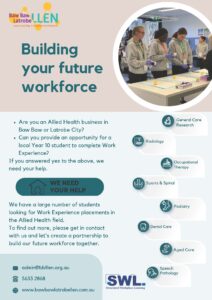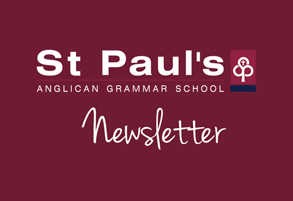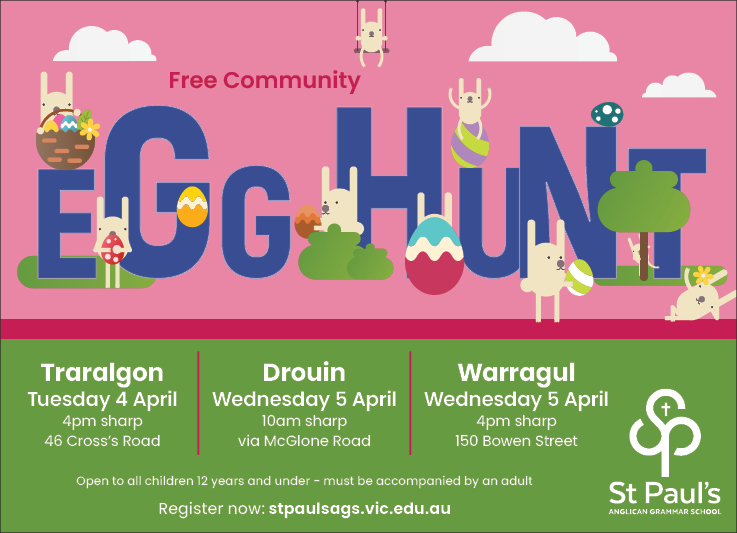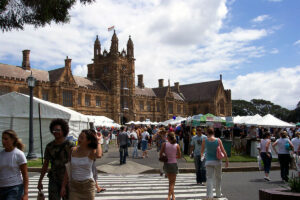In this issue
Careers News
What’s On:
• Warragul Secondary School
• Warragul Junior School
• Traralgon Secondary School
• Traralgon Junior School
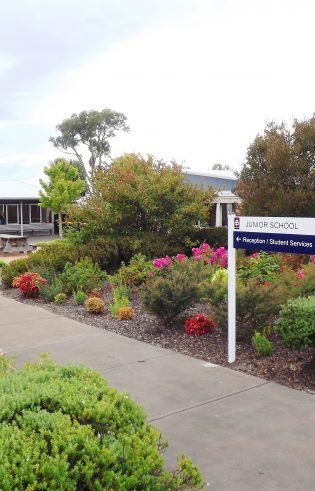
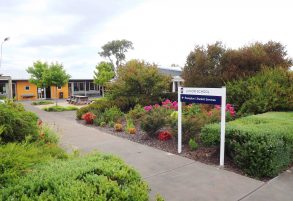
WHAT’S ON Traralgon Junior School
APRIL 3 April Year 6 Leadership Day ‘The Summit’ 4 April Hoodie Up for Autism Community Easter Egg Hunt, 3:45 pm 5 April Cross Country 6 April Easter Service, 10:20 am End of Term 1, 2:20 pm finish 24 April Term 1 Commences 25 April ANZAC Day Public Holiday …
WHAT’S ON Traralgon Junior School
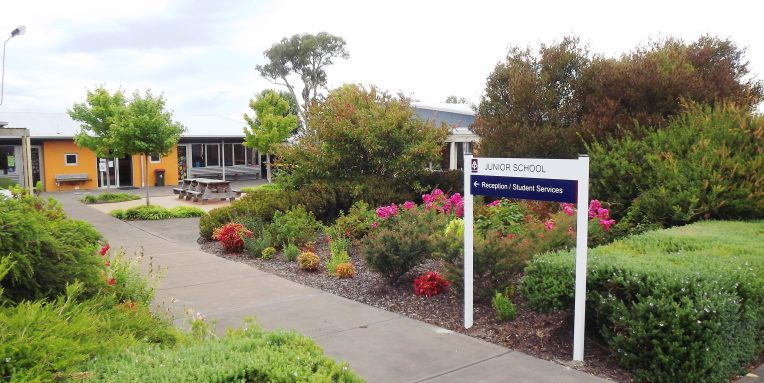
APRIL
3 April Year 6 Leadership Day ‘The Summit’
4 April Hoodie Up for Autism
Community Easter Egg Hunt, 3:45 pm
5 April Cross Country
6 April Easter Service, 10:20 am
End of Term 1, 2:20 pm finish
24 April Term 1 Commences
25 April ANZAC Day Public Holiday
MAY
4 May St Paul’s Alumni Association, Annual General Meeting, Warragul Secondary School Library, 7:30 pm
5 May School Photos
10 May Studio Concert
11 May Mother’s Evening Event
12 May Mother’s Day Stall
26 May National Sorry Day
JUNE
9 June Student Free Day
12 June King’s Birthday Public Holiday
21 June EXPO Afternoon, 2:30 pm
23 June BOHO Friday
End of Term 2, 3:20 pm finish
DOBSONS HOLIDAY TRADING HOURS
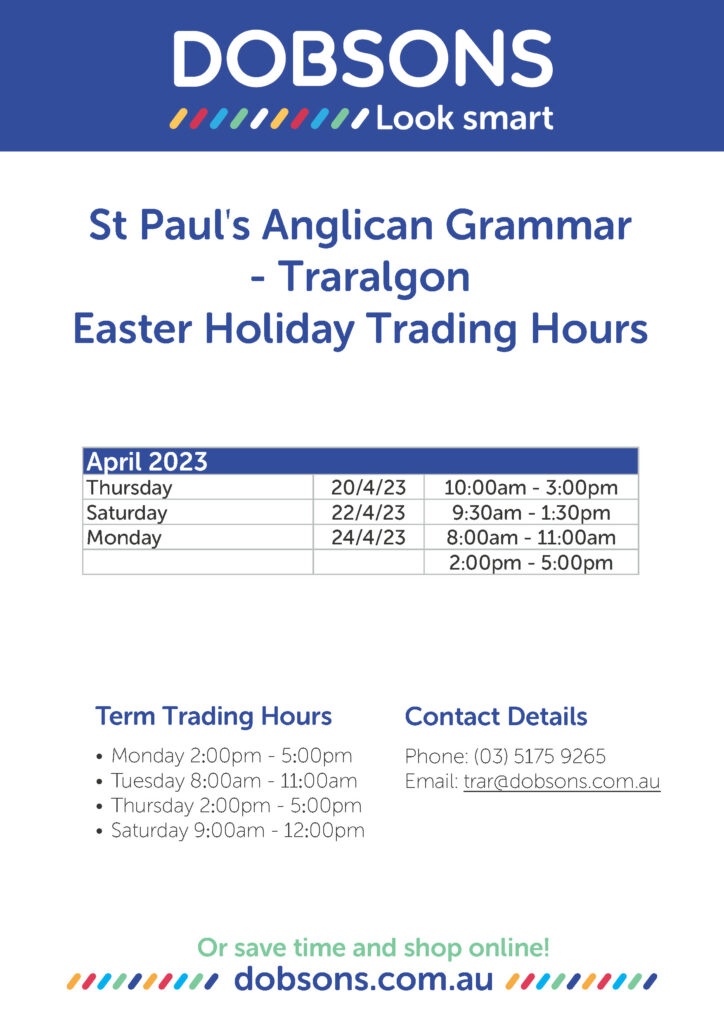
Order online or click and collect: Please ensure that you only attend the store to collect your items once you have received notification that your order is ready, order here.
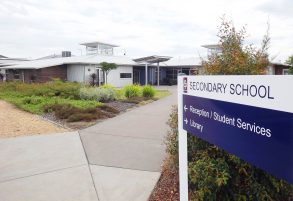
WHAT’S ON Traralgon Secondary School
APRIL 3 April House Athletics Carnival, Newborough Athletics Track 5 April Parent Student Teacher Interviews (PSTIs), Online, 4:00 pm 6 April Easter Service, 10:20 am …
WHAT’S ON Traralgon Secondary School
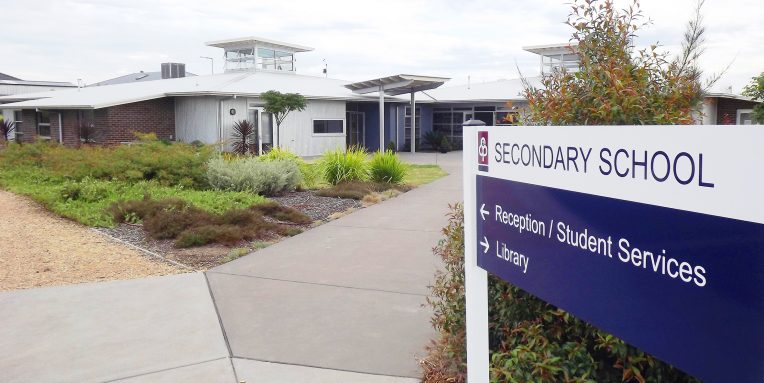
APRIL
3 April House Athletics Carnival, Newborough Athletics Track
5 April Parent Student Teacher Interviews (PSTIs), Online, 4:00 pm
6 April Easter Service, 10:20 am
End of Term 1, 2:10 pm finish
Please note: Traralgon Secondary School Reception will be closed during the Easter school holidays.
DOBSONS HOLIDAY TRADING HOURS

Order online or click and collect: Please ensure that you only attend the store to collect your items once you have received notification that your order is ready, order here.
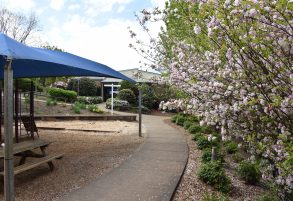
WHAT’S ON Warragul Junior School
APRIL 3 April Parent Prayer Group, Prideaux Centre, 9:00 am FOSP Hot Cross Bun DELIVERY (parent helpers required) 4 April Years 3 to 6 Easter …
WHAT’S ON Warragul Junior School
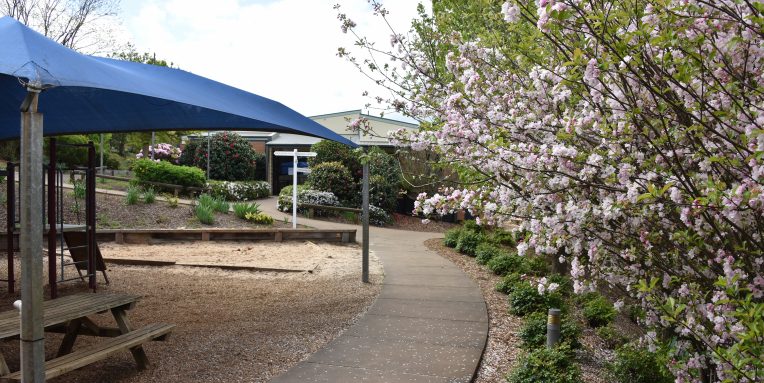
APRIL
3 April Parent Prayer Group, Prideaux Centre, 9:00 am
FOSP Hot Cross Bun DELIVERY (parent helpers required)
4 April Years 3 to 6 Easter Service, Junior School Gymnusium, 2:20 pm to 3:20 pm
5 April Community Easter Egg Hunt, 3:45 pm to 4:45 pm (parent helpers required)
6 April Prep to Year 2 Easter Service, Junior School Gymnasium, 12:40 pm to 1:15 pm
End of Term 1, 2:20 pm finish
24 April Term 2 Commences
ANZAC Day Service, 10:30 am
25 April ANZAC Day Public Holiday
MAY
1 to 5 May Year 6 Camp Coolamatong
2 May Division Athletics (selected students only)
4 May St Paul’s Alumni Association, Annual General Meeting, Warragul Secondary School Library, 7:30 pm
12 May Mother’s Day Stall
13 May Open Day, 10:00 am to 2:00 pm
4 May St Paul’s Alumni Annual General Meeting, Warragul Secondary School Library, 7:30 pm
17 May Whole School Anniversary Assembly, Secondary School Gymnasium, 10:30 am
Studio Concert, Warragul Secondary School, Parker Centre and Science Centre Lecture Theatre, 7:00 pm
23 May Division Cross Country (selected students only)
24 May National Simultaneous Storytime
26 May National Sorry Day
School Photos
27 May to 3 June Reconciliation Week
JUNE
1 June Cross Country (selected students only)
9 June Student Free Day
12 June King’s Birthday Public Holiday
13 June Prep Community Excursion
23 June End of Term 2, 2:20 pm finish
JUNIOR SCHOOL OFFICE HOLIDAY RECEPTION HOURS
Please find below the Junior School Office hours over the upcoming holidays.
CLOSED Friday 7 April to Tuesday 18 April
OPEN Wednesday 19 April to Friday 21 April 10:00 am to 3:00 pm
Term 2 commences on Monday 24 April
CLOSED Tuesday 25 April (ANZAC Day Public Holiday)
DOBSONS HOLIDAY TRADING HOURS
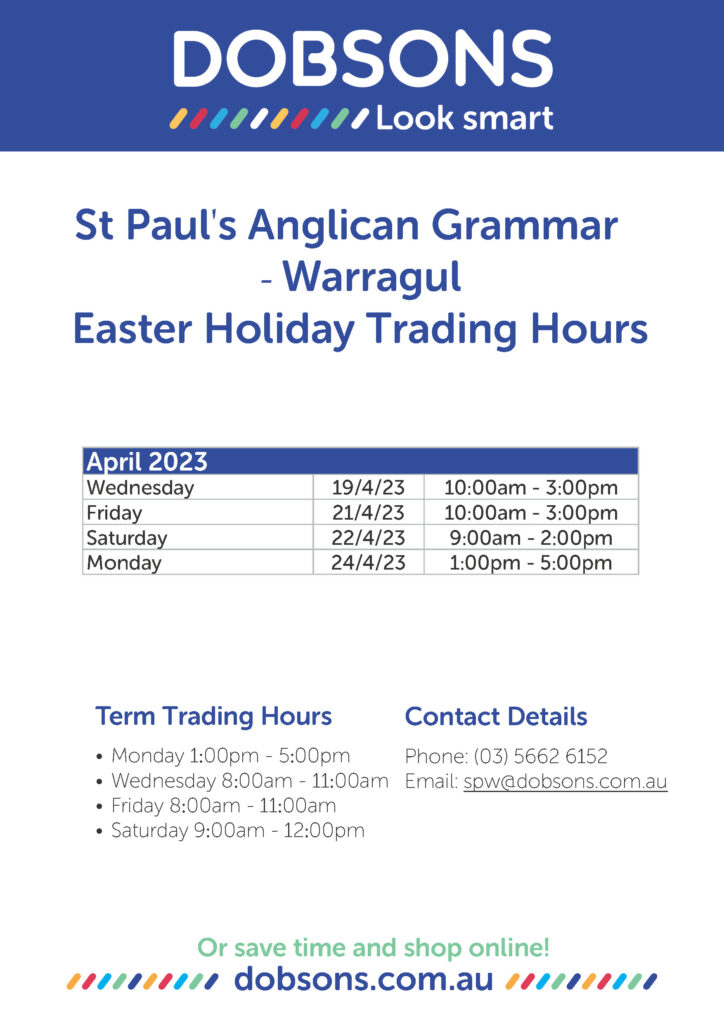
Order online or click and collect: Please ensure that you only attend the store to collect your items once you have received notification that your order is ready, order here.
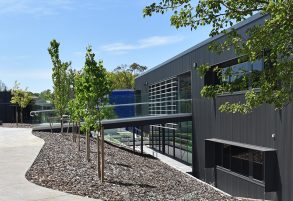
WHAT’S ON Warragul Secondary School
MARCH 31 March Year 12 Sport and Recreation – Melbourne Cable Park Day Trip, 9:00 am to 3:00 pm Year 9 Thinking and Learning – …
WHAT’S ON Warragul Secondary School
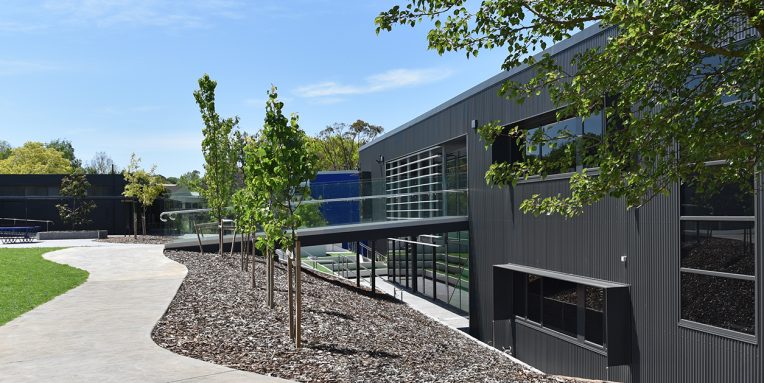
MARCH
31 March Year 12 Sport and Recreation – Melbourne Cable Park Day Trip, 9:00 am to 3:00 pm
Year 9 Thinking and Learning – Anglican Church, Warragul Excursion, 1:00 pm to 3:00 pm
APRIL
3 April House Athletics Carnival, Newborough Athletics Track, 9:00 am to 3:10 pm
Presentation Ball Training, Warragul Junior School Gymnasium, 3:25 pm to 5:00 pm
5 April Parent Student Teacher Interviews (PSTIs) session 2, ZOOM session, 4:00 pm to 8:30 pm
6 April SEISA Surfing, Woolamai Surf Beach, 8:00 am to 4:00 pm
End of Term 2, 2:10 pm finish
DOBSONS TRADING HOURS

Order online or click and collect: Please ensure that you only attend the store to collect your items once you have received notification that your order is ready, order here.
WARRAGUL SECONDARY SCHOOL RECEPTION HOLIDAY HOURS
Friday 7 April – Good Friday, Closed
Monday 10 April – Easter Monday, Closed
Tuesday 11 April to Friday 21 April – 10:00 am to 3:00 pm
Monday 24 April – 8:00 am to 5:00 pm
Tuesday 25 April – ANZAC Day Public Holiday, Closed
Wednesday 26 April – Resume normal hours, 8:00 am to 5:00 pm

CAREERS NEWS
Term 1 is nearly at an end and it has been a pleasure meeting with the Year 12 students to hear about their plans for …
CAREERS NEWS
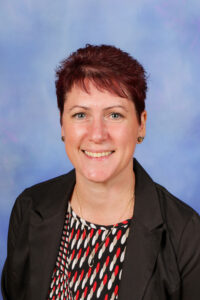
Term 1 is nearly at an end and it has been a pleasure meeting with the Year 12 students to hear about their plans for the future. I have worked with the Year 9 students at the Traralgon Campus on their resumes and cover letters and have begun to hear about what their plans for the future might be, including hearing about all the amazing opportunities they are taking part in. I have also been meeting with students from Years 10 and 11 and have spoken to and met with many parents. The Careers office is open to any student or family who wishes to have a conversation about future planning including subjects, pathways and university advice. Please do not hesitate to contact me via phone or email to make a time to have a conversation.
We will have several students out on work experience over the Easter break and I look forward to hearing about their experiences when we return in Term 2. If you are interested in participating in work experience, please contact the Careers office and we can work towards setting this up for the June/July holidays.
“Success is peace of mind, which is a direct result of self-satisfaction in knowing you made the effort to become the best of which you are capable.” – John Wooden
Sarah Luck
Head of Careers
sluck@stpaulsags.vic.edu.au

‘Talk it Out’ Holiday Event
This event is open to all secondary school students interested in learning more about mental health support and resources through detailed discussions led by Lifeline and Orygen the focus will be specifically on mental health around study demands.
Date: Thursday 20 April, 11:00 am – 2:00 pm
Venue: Victoria University – Footscray Park campus
Lunch will be provided on the day. Registrations are essential, so secure a spot at Victoria University – Holiday Program 2023.
Decisions, decisions, decisions

Are you planning on going to university or TAFE in the future? You might be feeling a bit overwhelmed by the thousands of course choices out there. If you are looking for some guidance, the team at Study Work Grow has outlined some things you might like to think about when looking for a course – it could help you make your decision.
Study location
This is one of the most important things you will need to consider first. Would you be willing to move to another city (or even state) to study your chosen course? Or perhaps you are unable (or unwilling) to move and you would like to stay living at home and study online instead.
As well as location, look at different universities or TAFEs and compare your options. Take a tour of the campus (in person or virtually), browse accommodation options and read about on-campus clubs, facilities and activities. See if you can read student reviews about their experience at the university or TAFE, or talk to someone you know who has studied there in the past.
Flexibility and access
As well as where you will be studying, take a look at other important details about the course. This includes things like whether part-time study is available, if the university or TAFE will let you defer your studies and what their study calendar is like (when will you be on holidays, for example).
You should also do a bit of research on the institution’s other options and services, such as how easy it is to switch between courses if you change your mind, whether you will receive any credit for past studies and what kind of support they offer (for example, for students with disabilities, career advice, etc).
Entry requirements
One of the key things you will need to know about a course is whether or not you are eligible to apply. So make sure you read and meet any ATAR requirements and have the needed subject prerequisites before you apply. If you are not eligible through the standard pathway, take a look at the university or TAFE’s alternative pathway options and see if there is another way you might be able to receive an offer instead.
Course fees
Unfortunately not a lot of things in life are free – and this includes most tertiary courses. Take a look at not only how much the course will cost, but what your options for payment are. If you are a domestic university student, you will probably be able to access a HELP loan to cover course fees. Lots of TAFEs and RTOs will provide payment plans for their courses too, and in some cases, you can apply for a VET Student Loan. But in some circumstances you might be expected to pay your course fees upfront, so make sure you know exactly what you will owe and how you will pay for it before signing up.
Career pathways
If you are looking into further study, it is probably because it will eventually lead you to your chosen job or career. So make sure the course will actually qualify you for future jobs. Take a look at job sites and see what qualifications employers are looking for in roles you would like to have one day. In some cases, you might be required to have a specific degree to start in your chosen career (if you want to be a doctor, for example, you will need to follow a set study pathway).
Also consider other jobs and pathways the course could take you, in case you find your career goals change over time or don’t pan out how you expected.
Have more questions about study options, courses or pathways? Check out more resources from Study, Work, Grow here.

Interested in studying business?
Not sure where to start or what business specialisations will suit you? If you decide to study a business degree at university, you will choose a specialisation – this is called a major. Majors are a sequence of subjects you study during your degree. When you are exploring business and/or commerce degrees at universities, it is important to research what majors they offer. This can help you to narrow down your university choices.
Monash University has developed an excellent website that enables you to map your ‘business personality’ to business majors. You can explore the site at Business Explorer
Open Days and Information Sessions
Students are invited to participate in on-campus higher education institution tours during the upcoming term break. Tours will be conducted by student ambassadors and specialist course advisers and will generally run for around 45 minutes.
Tours provide a perfect opportunity for prospective students and their families to ask questions about courses, student services, accommodation and scholarships etc. The following are examples of institutes that are running tours:
Deakin University
12–20 April: participate in a campus and accommodation tour at the Deakin campus of your choice, Deakin tours
Monash University
19–20 April: participate in a tour of the Clayton, Caulfield, and/or Peninsula campuses, www.monash.edu/discover/events
18 April: Medicine, Nursing and Health Science tours, Monash medicine tours
La Trobe University
Albury-Wodonga campus: book a campus tour by emailing Marcella Bulic, M.Bulic@latrobe.edu.au
Australian Catholic University
‘Discover ACU’ events are designed to give students a taste of university life. Students will have the opportunity to participate in hands-on workshops with faculty experts, explore first-class facilities, chat with current students and alumni as well as take a tour of the beautiful campuses. The first Discover event will be held at the Ballarat campus on Thursday 20 April.
For information and to register, visit Discover ACU
If you are unable to make that event or would like to tour a different ACU campus you can register for a personalised campus tour via ACU tour
Charles Sturt University
Register for a personalised campus tour via www.csu.edu.au/contacts/campus-tour
Swinburne University
Register for a personalised campus tour via Swinburne tours
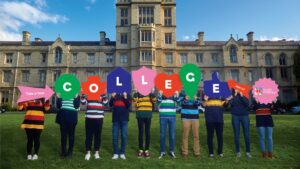
The University of Melbourne – Residential Colleges
If you are considering studying at The University of Melbourne in the future and would like to live on campus, you should consider attending Open House 2023. You will be able to tour the ten Residential Colleges and speak directly to advisers and current residents. The event will be held on Saturday 6 May from 11:00 am – 4:00 pm. For information and to register, visit Open House 2023
![]()
Collarts Open Day
Saturday 13 May
Collarts (Australian College of the Arts Pty Ltd) is a dynamic independent tertiary education college full of passion, individuality and opportunity. Focused on creating real career pathways into the creative sector for students, Collarts delivers industry-based learning coupled with strong personal and professional development.
Throughout its 30-year history as an education provider, Collarts (formerly AusMusic) has gained a reputation for delivering high-quality tertiary education with a distinct ability to always be at the forefront of contemporary culture. Our commitment to industry connection, agility and cultural relevance makes it a popular choice for students wanting the best start to a real career in the creative industry.
Enjoy detailed information sessions about Collarts courses with teachers and student advisors and discover what it is like to be part of their creative community.
Find out more here: Collarts open day
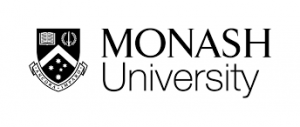
Monash has the following course information sessions, campus tours and information evenings running in April, for further details and to register visit: www.monash.edu/discover/events
| April 4 | Monash Information Evening – Peninsula |
| April 5 | Monash Information Evening – Warrnambool |
| April 19 | Clayton campus tours |
| April 20 | Caulfield and Peninsula campus tours |
| April 20 | Discover Business |
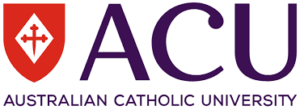
Talk with Industry Series
ACU is running the following online ‘Talk with Industry Series’ events in April:
April 18: Talk with Teachers
April 19: Talk with Lawyers and Criminologists
April 27: Talk with Business and IT Professionals
The sessions will be held between 6:00 pm – 7:00 pm and are open to prospective students, visit: ACU events

VCE AND CAREERS EXPO
Thursday 4 – Saturday 6 May
Students and families are invited to attend the annual VCE and Careers Expo, one of the biggest events on the calendar! Over four days you can attend a range of seminars on topics including:
- VCE subjects
- Tertiary courses
- Careers
- Employment opportunities
- Gap year options
Venue: Caulfield Racecourse, Caulfield
For information and to purchase tickets, visit VCE Careers Expo
Job Spotlight – Air Traffic Controller
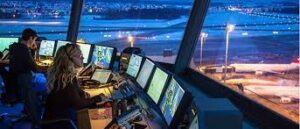
Responsible for keeping aircraft, flight crews and airline passengers safe, Air Traffic Controllers work from control towers and approach control facilities or route centres. They instruct aircraft when to safely take off or land and coordinate air traffic patterns to maintain safe distances from other aircraft. They also monitor all aircraft to ensure they are in the right place at the right time and are problem-free. They are authorised to change flight paths if necessary.
Are you incredibly focused and able to concentrate for long periods? Or a quick thinker and a great team player? Looking for a career that could take you anywhere in the world? Then consider a career in Air Traffic Control.
About you:
- Excellent decision maker
- Good spatial awareness and strong mathematical skills
- Work well under pressure
- Exceptional computer skills
- Confident, highly responsible and motivated
- Fluent English speaker
- Excellent communication skills
- Good forward planning but adaptable to changing situations
- Willing to do shift work
The job:
- Issue landing and take-off instructions to pilots
- Monitor and direct the movement of aircraft on the ground and in the air, using radar, computers, or visual references
- Organise flight plans and traffic management plans
- Control all ground traffic at airports, including baggage vehicles and airport workers
- Communicate with pilots, airport staff and other agencies as required
- Provide information to pilots, such as weather updates, runway closures and flight path changes or directions to emergency landing fields for pilots travelling in bad weather or in emergency situations
- Alert airport response staff in the event of an emergency
- Maintain accurate records and reports
Lifestyle Impact: High
- Part-time opportunities: Low – only around 12% of Air Traffic Controllers work part-time (source: labourmarketinsights.gov.au).
- Average hours for full-time workers: 40 hours a week, which is around average (source: labourmarketinsights.gov.au).
- Air Traffic Controllers’ salary (median) $123,000* per year (source: ato.gov.au). *Salaries greatly vary depending on your skills and experience. If you train through the ADF, you will earn $80,857 as soon as you finish your training (source: defencejobs.gov.au).
- Future career growth: Very strong (source: labourmarketinsights.gov.au).
- You will be doing most of your work indoors, from an air traffic control tower.
- You will need to do a lot of shift work and be prepared to work any time of the day or night.
Air Traffic Controllers are most in demand in these locations:
Demand for Air Traffic Controllers is highest in Queensland and the Northern Territory and many Air Traffic Controllers live and work in capital cities (around 70%). Most Air Traffic Controllers work in the Transport, Postal and Warehousing industry.
How to become an Air Traffic Controller in Australia
There are two pathways to becoming an Air Traffic Controller in Australia: either complete a traineeship through Airservices Australia, or complete training through the Australian Defence Force.
Step 1 – Complete Year 12 with a focus on English and Maths.
Step 2 – Complete a Diploma of Aviation (Air Traffic Control) with Airservices Australia. The course will take 12 months if you go down the Tower path, or 14 months if you go down the Enroute path.
Step 3 – Alternatively, you can complete your training with the Royal Australian Air Force (RAAF), which can take around 12 to 18 months.
Step 4 – Pass an aviation medical and meet security clearance requirements.
Step 5 – Start working as a fully qualified Air Traffic Controller.
Similar Careers to Air Traffic Controller
- Pilot
- Aircraft Engineer
- Astronaut
- Engineer
- Cyber Security Specialist
- Defence Force
Find out more about alternative careers
Frequently Asked Questions (FAQs)
What options are there for career progression?
Generally your salary will increase as you gain more experience as an Air Traffic Controller. There may also be further specialist qualifications you might like to undertake.
Do I need to go to university to become an Air Traffic Controller?
You don’t need to go to university, but you will still need to follow a formal pathway (either through Airservices Australia or the ADF) to work as an Air Traffic Controller.
Where do Air Traffic Controllers work?
Air Traffic Controllers spend the majority of their time working in control towers, which are located at all airports – even little ones.
What are three things I can do right now to help me become an Air Traffic Controller?
If you would like to find out if a career as an Air Traffic Controller is right for you, here are a few things you could do right now:
- Start researching the pathways and decide which one is better for you. Consider things like whether you will need to move far, starting salaries and your future flexibility.
- See if you can find work experience in aviation or transport. This will help you see if you might enjoy the work and can help you start building important contacts for the future.
- Talk to an Air Traffic Controller to see what a day in their life is like. If you do not know anyone, see if you can watch videos or documentaries about a career in aviation.
Find out more here: How to become an Air Traffic Controller (ATC)
https://www.airservicesaustralia.com/
Work Experience
A reminder that if you would like to arrange a work experience placement for the upcoming holidays you must submit all paperwork to myself or Mrs Sinnett as soon as possible. Please come and see me if you need any assistance.
Work experience programs

Swinburne University offers week-long work experience placements for students in Years 9 and 10 in the following study areas:
- Applied Mathematics
- Astronomy and Astrophysics
The work experience placements will be held at the Hawthorn campus. For information on dates and to apply, visit Swinburne work experience

Deakin University is offering laboratory science work experience for 36 lucky Year 10 students at their Melbourne Burwood campus. The experience is for high-achieving Year 10 students who are interested in molecular biology and cell science. Dates for the experience are 12–16 June 2023.
Applications are now open and students can apply via Deakin work experience
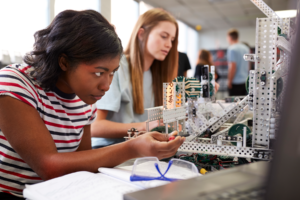
Female students in Years 10 and 11 who are interested in STEM are invited to apply for the week-long Tata Consultancy Services’ goIT Girls program.
Participants meet senior executives from Tata Consultancy Services and its client organisations, who provide insight into the various STEM roles that exist across the business spectrum with the goal of inspiring a new generation of innovators, problem solvers and technology professionals. goIT Girls will be offered as an in-person or virtual experience in 2023.
For information and to apply, visit: Go IT Girls
Airline Pilot Workshop
Flight Academy Australia is pleased to offer a two day program at Essendon Airport giving you a start in an exciting career in Aviation. These workshops provide a priceless opportunity when considering your career in Aviation.
Over the two days you will receive:
◦ Career advice
◦ Training options
◦ Introduction to aviation ground theory
◦ Log book
◦ Two flight training lessons
◦ 30 minutes of simulator time
The cost is $1,000 and you will receive a certificate upon completion.
Phone 9374 2282 to register.
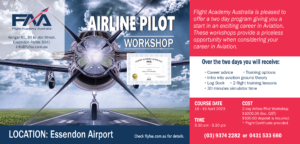
Competition

Calling all High School filmmakers
As part of their annual Martini Film Festival and Awards, JMC Academy hosts the High School Mocktail Film Awards. To enter, you will need to submit a short film (either a film, documentary, animation, television commercial or film clip) by Sunday 14 May. There are amazing prizes to be won, for further information visit: Mocktail Film Awards
University News

Biomedical Engineering Specialisation
A biomedical engineering specialisation is offered in the Bachelor of Engineering (Honours) at Monash Clayton campus. Students seeking a career combining medicine and technology can undertake this engineering specialisation and will learn to design and develop new diagnostics, monitoring tools and therapies and build new medical instruments and devices through the study of engineering design fundamentals and biological science subjects.
There is very strong jobs growth predicted for biomedical engineers is projected over the next five years. Biomedical engineers find exciting and rewarding career opportunities in the following areas:
- Medical equipment and device design and manufacturing
- Medical and healthcare services
- Biomedical instrumentation industries
- Research and development
- Med-tech entrepreneurship
- Engineering consultancy
Find out more: Biomedical Engineering Specialisation
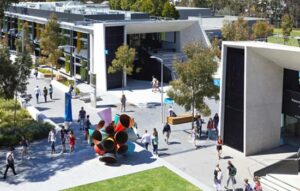
Monash Science
Science is the ultimate career for those who want to unlock the secrets of the universe… and have a lot of fun in the process. Scientists dissect and discover, explode and explore, investigate and invent – and their work can genuinely change the world.
Students might be interested in having a closer look at Physics and Astronomy 360 Collaborative-learning Environment (PACE) and a 360-degree look at these facilities.
Students might also like to participate in a Science Precinct Tour in the July school holidays. Students will be able to take a closer look and see the facilities where they could be studying after Year 12.
Registration is important, register here: Precinct Tours
Pathway Certificate Courses into Health Science
Monash University offers two online certificate courses, for students who might like to try a short course before entering the bachelor degree.
1. University Certificate in Mental Health – aimed at developing one’s knowledge and skills in responding to mental health needs – from understanding mental illnesses to different perspectives in mental health services, through to strategies for treatment and recovery. Students learn from world-recognised mental health researchers and practitioners with a curriculum shaped by their global expertise and industry experience in the mental health sector that includes contributions from those with lived experience in mental illness.
The course is delivered fully online, combining the flexibility required by working professionals. This course can lead towards further study, with the opportunity to progress into the Bachelor of Health Sciences.
2. Undergraduate Certificate of Health Care Essentials – aimed at aiding students to develop knowledge and skills for roles in the disability, respite and aged care sectors. Students gain up-to-date knowledge of patient care basics and patient safety and they are able to choose from four electives: wound prevention and care, nutrition, rural health and mental health. The course has been developed by experienced health professionals, educators and researchers.
With an Undergraduate Certificate of Health Care Essentials, students may be eligible to apply for the Bachelor of Health Sciences.
Monash Engineering
Monash’s undergraduate engineering courses are designed with choice and flexibility in mind, to optimise career prospects and encourage students to diversify their study options at Monash University. Monash offers a range of single and double degrees with specialisations and minors in 19 traditional and emerging engineering fields.
Students are encouraged to browse Engineering at Monash and use the useful links provided including a virtual tour of the engineering facilities.
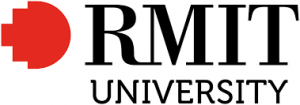
Engineering at RMIT
Students should note that, with the exception of the Bachelor of Software Engineering, all other Bachelor of Engineering degrees now require a study score of at least 20 in one of Maths: General Mathematics (previously known as Further Mathematics), Maths: Mathematical Methods or Maths: Specialist Mathematics.
Find out more at: Engineering at RMIT University.
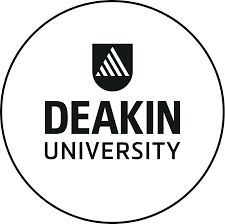
New Exercise Science degree
Deakin University has just announced a new degree starting in 2024 for high achievers – Bachelor of Sport and Exercise Science Advanced (Honours). The course aims to distinguish graduates in the field of exercise and sport science and will be offered at the Geelong Waurn Ponds campus.
Leveraging Deakin’s strong industry partnerships, students will complete 220 hours of placement experience within a variety of environments such as professional sporting clubs, governing bodies, high-performance centres, recreational gyms and rehabilitation clinics ensuring they graduate job-ready. Learn about the course via Exercise Science
Years 9 and 10 students
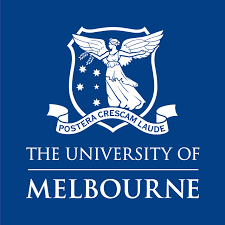
A Day at Melbourne is an exciting event for Year 9 and 10 students running at the Parkville campus on Saturday 22 April. Students will choose two hands-on workshops, participate in information sessions and speak one-to-one with course advisers. Parents will be able to participate in two parent-specific sessions.
For information and to book your place, visit A Day at Melbourne
Scholarships
Tips for Maximising your Scholarship Application
Thinking of applying for a scholarship? There are heaps of reasons why you should – but how can you make sure your application is the one that stands out from the crowd? Follow the tips below to maximise your scholarship application.
Start early
Some scholarship applications can be quite involved and need a lot of information, so it is best to ensure you give yourself enough time to get all your documents together and can craft a quality application. Plus, the earlier you start the less likely it is you will miss the closing date!
Use examples
There are lots of scholarships that will probably ask you to demonstrate your skills or experience – so think of situations you have been in and how they might specifically apply to the scholarship you are applying for. A great way of doing this is by using the STAR method:
- Situation: Describe the situation and when it took place.
- Task: Explain the task, the goal and your role.
- Action: Provide details about the action you took.
- Result: Talk about the results of your actions, try and use concrete numbers or evidence if possible.
Read the criteria carefully
While it might seem like a good idea to cast a wide net, you should still make sure you are eligible for any scholarships you apply for. At the end of the day, you will not only be wasting the assessor’s time but your own as well.
Do some research
If the scholarship is offered or sponsored by a donor, do some research on them. Think of ways you can tie your skills and experience together with the donor’s mission or goals, and use this to your advantage. It shows you have gone that one step further and can make your application stand out.
Make it personal
A lot of the time, institutions will want to know a bit more about you and your motivations. It is important to answer any questions honestly and not just say what you think they will want to hear. And if your personality and interests tie in with the scholarship criteria, even better – use that as a way to show why you are most deserving of the scholarship.
Keep it relevant
Building on the point above, it is also important not to detail things that are irrelevant to the scholarship. Addressing any eligibility criteria in a way that is both concise and relevant is a great way to maximise your application (a lot of applications will have word limits you need to stick to as well).
Do not limit yourself
There are literally thousands of scholarships out there – so give yourself the best chance of winning one and apply for as many as you can. Lots of scholarships go unawarded every year simply because people do not apply! Remember to ensure you are eligible before applying.
Interested in applying for a scholarship? You can search through hundreds on the Study Work Grow website and get more tips for maximising your application here.
University Courses

Bachelor of Applied Science (Medical Radiations)
You may have heard that the Victorian state government is investing $44 million in PET scanners for hospitals around the state, but did you know that RMIT is the only university in Victoria to train the nuclear medicine technologists who can operate the scanners?
Nuclear medicine uses very small amounts of radioactive materials (radiopharmaceuticals) to diagnose and treat disease. Common nuclear medicine applications include cardiac stress tests to analyse heart function, bone scans for orthopaedic injuries, and lung scans for blood clots. Radiopharmaceuticals are detected using special cameras (gamma camera technology and positron emission tomography) to provide real-time images of processes occurring within the body.
Nuclear medicine technologists work closely with patients and other health professionals in the treatment of disease. They carry out tests, which may include cardiac stress tests to analyse heart function, bone scans for orthopaedic injuries and lung scans for blood clots.
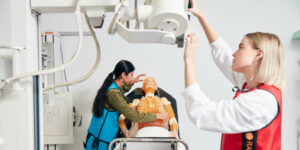
At RMIT, nuclear medicine is offered as one of three specialised streams within the Medical Radiations Degree.
The VCE prerequisite subjects are: Units 1 and 2: satisfactory completion in one of Biology or Chemistry or Units 3 and 4: one of Biology or Chemistry; Units 3 and 4: a study score of at least 30 in English (EAL) or at least 25 in English other than EAL; Units 3 and 4: a study score of at least 20 in one of Maths: Mathematical Methods or Maths: Specialist Mathematics. The ATAR for 2023 entry is 79.80.
Find out more: Bachelor of Applied Science (Medical Radiations) – RMIT University

Studying the Bachelor of Artificial Intelligence at Deakin
Artificial intelligence is driving digital disruption, with new technology helping redefine many industries. Many companies are looking to take advantage of recent advances in artificial intelligence, which is creating a large demand for skilled professionals.
Students gain the skills necessary to design, develop and evolve software solutions that take advantage of the latest advances in artificial intelligence (AI). Students get hands-on experience developing AI-driven software solutions with the support of academics who are leaders in this emerging field. Deakin’s world-class research in AI feeds directly into the classrooms, ensuring what students learn is at the cutting edge of industry expectations and capabilities.
Students will have access to fully equipped computer labs with the latest software and technologies to ensure they graduate with the specialist skills to design and build the intelligent systems of the future. Students will also have opportunities to obtain certificates from the training program for Microsoft Azure AI.
With a minimum of 100 hours of industry experience, students will gain the skills required to become an artificial intelligence specialist; allowing them to work alongside software engineers, data scientists, application developers and business analysts, applying their specialist knowledge to ensure artificial intelligence is appropriately integrated into software solutions from a technical and human perspective.
Find out more: Bachelor of Artificial Intelligence

Bachelor of Politics, Philosophy and Economics (PPE)
Do you have interests in humanities, global studies and business but do not know what you would like to study at university in the future?
The Bachelor of Politics, Philosophy and Economics (PPE) might be the perfect choice for you! Here are some reasons why:
- It is a mix of politics, philosophy and economics, which can give you a broad understanding of how these fields intersect and influence each other.
- You will learn how to think critically about complex social, political and economic issues from multiple perspectives.
- PPE can lead to a variety of careers in law, public policy, government, business and more.
- You will gain an understanding of global issues like economic inequality and international conflicts.
- PPE can prepare you for further studies in law, public policy, economics, and philosophy.
You can study for this degree at the following Victorian universities:
Monash University, www.monash.edu
Deakin University, www.deakin.edu.au
La Trobe University, www.latrobe.edu.au
Veterinary Science
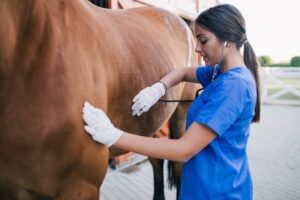
Have you considered pursuing a career in veterinary science? Entry into these courses is very competitive. You can apply to enter courses via undergraduate (straight from school) or graduate (complete a university degree first) entry. It is never too early to start preparing for course entry. The following are important tasks to focus on:
Subjects
It is important you are studying subjects that will enable you to enter undergraduate entry courses and be prepared for the rigour of university study. Recommended high school subjects are: Chemistry, Biology, Physics and Advanced Mathematics. Some undergraduate entry courses have prerequisites in Chemistry and Advanced Mathematics.
Work experience
Some courses will require you to demonstrate a ‘commitment to the animal industry’. For these courses, you will need to supply evidence of work experience and/or volunteering as part of your application.
Interview
Some courses will require short-listed applicants to participate in an interview. Build your interview skills through practising with friends and family, and through engaging in community programs, employment, sport and leadership programs.
For information on entry requirements for Vet science courses in Australia, visit Vet science brochure
Spotlight on Event Management Courses in Victoria 2023

The Good Universities Guide indicates that an event planner or event coordinator plans and organises special events, including parties, wedding receptions, product launches, banquets, sporting events, meetings, conferences, and conventions. Successful event planners:
- enjoy working with people
- good organisational and time management skills
- have every attention to detail
- good interpersonal and supervisory skills
- good communication skills
- neat personal appearance
- comfortable working with computers
- able to negotiate, delegate and work under pressure
Depending on the size of the establishment, event coordinators may work independently or as part of a team. They often work irregular hours and on weekends and public holidays. Learn more at Good Universities Guide – Events. For a comprehensive list of all event courses offered by all Victorian institutions, visit VTAC.
There are a number of institutions in Victoria that offer courses, or majors, in event management; some of these include:
| INSTITUTION | COURSES IN 2023 | VCE ENTRY REQUIREMENTS |
| Deakin University | Bachelor of Business | Units 3 and 4: a study score of at least 25 in English (EAL) or at least 20 in English other than EAL. |
| Holmesglen Institute | Diploma of Event Management | Successful completion of Year 12 |
| Diploma of Sport with Diploma of Event Management | Successful completion of Year 12 | |
| La Trobe University | Bachelor of Business | Units 3 and 4: a study score of at least 25 in English (EAL) or at least 20 in English other than EAL. |
| Bachelor of Business (Event Management) | Units 3 and 4: a study score of at least 25 in English (EAL) or at least 20 in English other than EAL. | |
| Melbourne Polytechnic | Bachelor of Hospitality Management | Successful completion of Year 12 VCE or equivalent with no specified minimum ATAR score and a study score of at least 20 in any English. |
| Diploma of Live Production and Technical Services | Successful completion of Year 12 | |
| Swinburne University | Diploma of Event Management | Successful completion of Year 12 |
| Victoria University | Diploma of Event Management | Successful completion of Year 12 |
| Bachelor of Business (Event Management) | Units 3 and 4: a study score of at least 25 in English (EAL) or at least 20 in English other than EAL. | |
| William Angliss Institute | Diploma of Event Management | Successful completion of Year 12 |
| Associate Degree in Event Management | Successful completion of Year 12 and ATAR is used for selection | |
| Bachelor of Event Management | Successful completion of Year 12 and ATAR is used for selection |
Snapshot of William Angliss Institute (WAI) in 2023
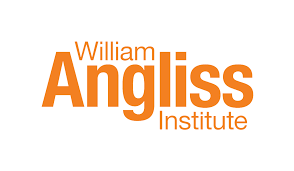
- With around 23,000 students enrolling each year, WAI offer a broad range of training and education programs including accredited traineeships and apprenticeships, certificates, diplomas and advanced diplomas, short courses, graduate certificates, bachelor and master degrees.
- WAI main campus is in Melbourne with a campus in Sydney as well. It also has campuses overseas in countries including China, Sri Lanka, Vietnam and Singapore – About WAI.
- WAI is one of Australia’s largest specialist centres for food, tourism, hospitality and events training.
- Courses are categorised into various groups:
- Food Studies and Culinary Arts, Food Science and Technology, Baking, Patisserie – Foods
- Tourism, Travel, and Aviation – Tourism
- Hospitality and Resort and Hotel Management – Hospitality
- Event Management – Events
- WAI offers a number of Bachelor’s degrees including:
- Bachelor of Culinary Management
- Bachelor of Food Studies
- Bachelor of Tourism and Hospitality Management
- Bachelor of Resort and Hotel Management
- Bachelor of Event Management
- Bachelor of Tourism
- Bachelor of Tourism (Marketing)
- Bachelor of Tourism (Ecotourism)
- WAI also offers Apprenticeships and Traineeships, as well as numerous short courses.
- WAI offers a 6-month Certificate III in Aviation designed to enhance students’ opportunities to fulfil their plans to work with an airline as a cabin crew member. The focus of this course is on customer service and not really on emergency procedures. Topics of study are beverage service, flight retailing, meeting customers and managing disruptive customers.
- Numerous scholarships are on offer to students each year.
The Angliss International Hotel School offers students a study pathway to take service delivery to a new and luxurious level. With exposure to masterclasses covering the finer and more specialised areas of hotel service, students will be equipped for a career offering exceptional service in the international hotel industry.
Australian Defence Force Academy
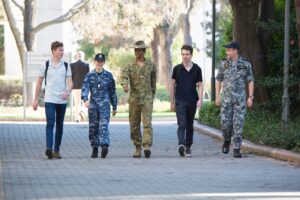
Students who would like to combine university study with a military lifestyle and career should consider applying for the Australian Defence Force Academy (ADFA), Canberra. Students will receive a fully subsidised university degree from UNSW, a wage and military training in the role they apply for.
Undergraduate degrees include:
- Arts
- Business
- Engineering – Aeronautical, Civil, Electrical, and Mechanical
- Aviation
- Computing and Cyber Security
- Science
Civilians can also study at ADFA, Canberra. For information and to start your application, visit www.unsw.adfa.edu.au
